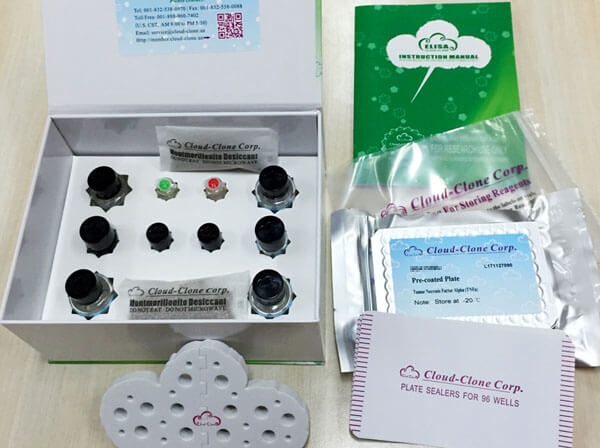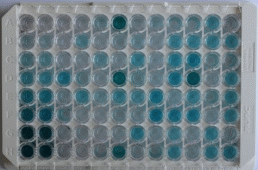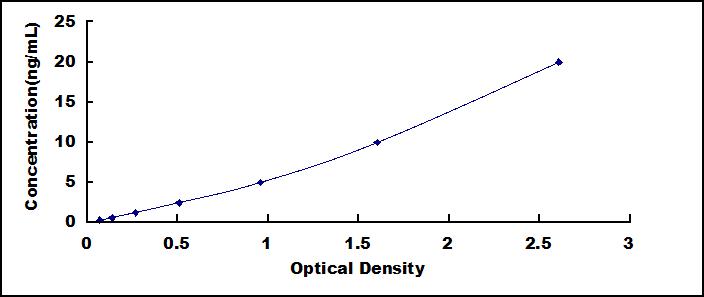ELISA Kit for Alpha-Fetoprotein (AFP) 

aFP; A-FP; FETA; HPAFP; Alpha-Fetoglobulin; Alpha-1-fetoprotein
- UOM
- FOB US$ 479.00 US$ 684.00 US$ 3,078.00 US$ 5,814.00 US$ 47,880.00
- Quantity
Overview
Properties
- Product No.SEA153Ra
- Organism SpeciesRattus norvegicus (Rat) Same name, Different species.
- ApplicationsEnzyme-linked immunosorbent assay for Antigen Detection.
Research use only - DownloadInstruction Manual
- CategoryTumor immunityHepatology
Sign into your account
Share a new citation as an author
Upload your experimental result
Review

Contact us
Please fill in the blank.
Recovery
Matrices listed below were spiked with certain level of recombinant Alpha-Fetoprotein (AFP) and the recovery rates were calculated by comparing the measured value to the expected amount of Alpha-Fetoprotein (AFP) in samples.
| Matrix | Recovery range (%) | Average(%) |
| serum(n=5) | 85-92 | 89 |
| EDTA plasma(n=5) | 80-101 | 81 |
| heparin plasma(n=5) | 91-104 | 98 |
Precision
Intra-assay Precision (Precision within an assay): 3 samples with low, middle and high level Alpha-Fetoprotein (AFP) were tested 20 times on one plate, respectively.
Inter-assay Precision (Precision between assays): 3 samples with low, middle and high level Alpha-Fetoprotein (AFP) were tested on 3 different plates, 8 replicates in each plate.
CV(%) = SD/meanX100
Intra-Assay: CV<10%
Inter-Assay: CV<12%
Linearity
The linearity of the kit was assayed by testing samples spiked with appropriate concentration of Alpha-Fetoprotein (AFP) and their serial dilutions. The results were demonstrated by the percentage of calculated concentration to the expected.
| Sample | 1:2 | 1:4 | 1:8 | 1:16 |
| serum(n=5) | 90-104% | 78-101% | 89-103% | 78-98% |
| EDTA plasma(n=5) | 81-99% | 82-99% | 96-104% | 81-90% |
| heparin plasma(n=5) | 88-105% | 80-90% | 95-102% | 98-105% |
Stability
The stability of kit is determined by the loss rate of activity. The loss rate of this kit is less than 5% within the expiration date under appropriate storage condition.
To minimize extra influence on the performance, operation procedures and lab conditions, especially room temperature, air humidity, incubator temperature should be strictly controlled. It is also strongly suggested that the whole assay is performed by the same operator from the beginning to the end.
Reagents and materials provided
| Reagents | Quantity | Reagents | Quantity |
| Pre-coated, ready to use 96-well strip plate | 1 | Plate sealer for 96 wells | 4 |
| Standard | 2 | Standard Diluent | 1×20mL |
| Detection Reagent A | 1×120µL | Assay Diluent A | 1×12mL |
| Detection Reagent B | 1×120µL | Assay Diluent B | 1×12mL |
| TMB Substrate | 1×9mL | Stop Solution | 1×6mL |
| Wash Buffer (30 × concentrate) | 1×20mL | Instruction manual | 1 |
Assay procedure summary
1. Prepare all reagents, samples and standards;
2. Add 100µL standard or sample to each well. Incubate 1 hours at 37°C;
3. Aspirate and add 100µL prepared Detection Reagent A. Incubate 1 hour at 37°C;
4. Aspirate and wash 3 times;
5. Add 100µL prepared Detection Reagent B. Incubate 30 minutes at 37°C;
6. Aspirate and wash 5 times;
7. Add 90µL Substrate Solution. Incubate 10-20 minutes at 37°C;
8. Add 50µL Stop Solution. Read at 450nm immediately.

Test principle
The test principle applied in this kit is Sandwich enzyme immunoassay. The microtiter plate provided in this kit has been pre-coated with an antibody specific to Alpha-Fetoprotein (AFP). Standards or samples are then added to the appropriate microtiter plate wells with a biotin-conjugated antibody specific to Alpha-Fetoprotein (AFP). Next, Avidin conjugated to Horseradish Peroxidase (HRP) is added to each microplate well and incubated. After TMB substrate solution is added, only those wells that contain Alpha-Fetoprotein (AFP), biotin-conjugated antibody and enzyme-conjugated Avidin will exhibit a change in color. The enzyme-substrate reaction is terminated by the addition of sulphuric acid solution and the color change is measured spectrophotometrically at a wavelength of 450nm ± 10nm. The concentration of Alpha-Fetoprotein (AFP) in the samples is then determined by comparing the O.D. of the samples to the standard curve.
Giveaways
Increment services
-
 Single-component Reagents of Assay Kit
Single-component Reagents of Assay Kit
-
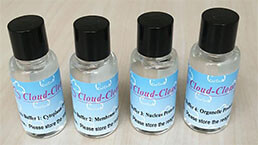 Lysis Buffer Specific for ELISA / CLIA
Lysis Buffer Specific for ELISA / CLIA
-
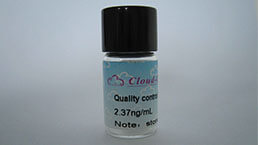 Quality Control of Kit
Quality Control of Kit
-
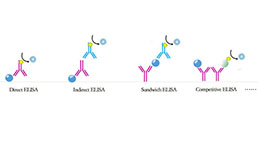 ELISA Kit Customized Service
ELISA Kit Customized Service
-
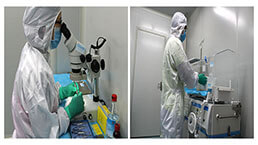 Disease Model Customized Service
Disease Model Customized Service
-
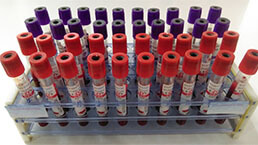 Serums Customized Service
Serums Customized Service
-
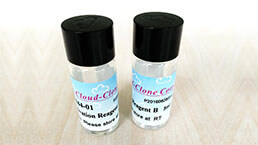 TGFB1 Activation Reagent
TGFB1 Activation Reagent
-
 Real Time PCR Experimental Service
Real Time PCR Experimental Service
-
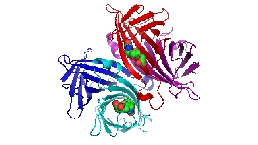 Streptavidin
Streptavidin
-
 Fast blue Protein Stain solution
Fast blue Protein Stain solution
-
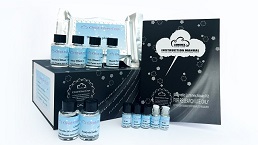 Single-component Reagents of FLIA Kit
Single-component Reagents of FLIA Kit
-
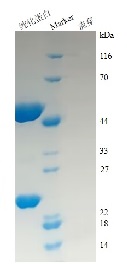 Streptavidin-Agarose Beads
Streptavidin-Agarose Beads
Citations
- Ginger ingredients inhibit the development of diethylnitrosoamine induced premalignant phenotype in rat chemical hepatocarcinogenesis modelPubMed: 20872761
- Investigation of the Biochemical and Histological Changes Induced by Zearalenone Mycotoxin on Liver in Male Mice and the Protective Role of Crude Venom Extracted from Jellyfish Cassiopea Andromeda.Scirp: 5684
- Polyol profile as an early diagnostic and prognostic marker in natural product chemoprevention of hepatocellular carcinoma in diabetic ratsScienceDirect: S0168822711000520
- Comparison of angiotensin converting enzyme inhibitors and angiotensin II type 1 receptor blockade for the prevention of premalignant changes in the liverScienceDirect: S0024320511002700
- Cytokines as important playmakers of experimental hepatocarcinogenesis confounded by diabetes.Hepatology: source
- Chemopreventive and therapeutic efficacy of Salsola inermis extract against N-nitrosodiethylamine-initiated and phenobarbital-promoted hepatocellular carcinogenesis in Wistar ratsScienceDirect: S2210522013000348
- Suramin inhibits hepatic tissue damage in hepatocellular carcinoma through deactivation of heparanase enzymePubmed: 24530413
- Association of Paraoxonase-1 (Q192R and L55M) Gene Polymorphisms and Activity with Colorectal Cancer and Effect of Surgical Intervention.Pubmed:25684529
- Detection of HIV-1 p24 antigen using streptavidin–biotin and gold nanoparticles based immunoassay by inductively coupled plasma mass spectrometryRsc:Source
- Development of a Highly Sensitive Glycan Microarray for Quantifying AFP-L3 for Early Prediction of Hepatitis B Virus–Related Hepatocellular CarcinomaPubmed:24927126
- Evaluation of 11C-acetate and 18F-FDG PET/CT in mouse multidrug resistance gene-2 deficient mouse model of hepatocellular carcinomaPubMed: 25981587
- Elevated serum soluble CD14 levels in chronic HBV infection are significantly associated with HBV-related hepatocellular carcinomaPubMed: 26643893
- The concentrations of selected blood serum proteins in calves during the first three months of life85:33
- Predictive value of tumor markers in patients with recurrent hepatocellular carcinoma in different vascular invasion patternabstract:abstract4525.shtml
- Chemopreventive effect of Indigofera linnaei extract against diethylnitrosamine induced hepatocarcinogenesis in rats2071_pdf.pdf
- Anticarcinogenic potential of ethanol extract of Indigofera cordifolia Roth.(Fabales: Fabaceae) on diethylnitrosamine induced hepatocarcinogenesis in ratsv04n07a07a
- Effect of Mesenchymal Stem Cells on Transforming Growth Factor Beta Level in Hepatocellular Carcinoma Induced Rat Model1345-1349
- Antiangiogenic activity of vitexicarpine in experimentally induced hepatocellular carcinoma: Impact on vascular endothelial growth factor pathwaypubmed:28651490
- Mesenchymal stem cell therapy of hepatocellular carcinoma in rats: Detection of cell homing and tumor mass by magnetic resonance imaging using iron oxide nanoparticlesISSN 2451-2680
- Evaluation of the antitumor activity of platinum nanoparticles in the treatment of hepatocellular carcinoma induced in ratspubmed:28720064
- Lnc-PCDH9-13: 1 Is a Hypersensitive and Specific Biomarker for Early Hepatocellular CarcinomaPubmed:30045829
- One-pot synthesis of a highly selective carboxyl-functionalized superparamagnetic probes for detection of alpha-fetoprotein10.1016:j.snb.2018.03.038
- Cytotoxic and partial hepatoprotective activity of sodium ascorbate against hepatocellular carcinoma through inhibition of sulfatase-2 andPubmed:29669302
- Dynamic Volume Assessment of Hepatocellular Carcinoma in Rat Livers Using a Clinical 3T MRI and Novel SegmentationPubmed:28107094
- Impact of Mesenchymal Stem Cells and Vitamin D on Transforming Growth Factor Beta Signaling Pathway in Hepatocellular Carcinoma in RatsPubmed:29693337
- The Association of Peroxiredoxin 4 with the Initiation and Progression of Hepatocellular CarcinomaPubmed:29687726
- Chemoprotective Efficacy of Curcumin and Flax Seed Oil in 1, 2-Dimethylhydrazine Induced Rat Colon Cancer
- Ameliorative effects of honey and venom of honey bee on induced colon cancer in male albino rats by1, 2 dimethylhydrazine
- The therapeutic effects of nicotinamide in hepatocellular carcinoma through blocking IGF-1 and effecting the balance between Nrf2 and PKBPubmed: 30784932
- Chemopreventive effects of on diethylnitrosamine induced and Indigofera cassioides phenobarbital promoted rat liver carcinoma
- Circulating exosomal miR‐92b: Its role for cancer immunoediting and clinical value for prediction of posttransplant hepatocellular carcinoma recurrencePubmed: 31162867
- Targetingp53/TRAIL/caspase-8 signaling by adiponectin reverses thioacetamide-induced hepatocellular carcinoma in ratsPubmed: 31421311
- Glutamine synthetase promotes tumor invasion in hepatocellular carcinoma through mediating epithelial–mesenchymal transitionPubmed: 31652385
- Selective cytotoxic activity and protective effects of sodium ascorbate against hepatocellular carcinoma through its effect on oxidative stress and apoptosis in vivo and …Pubmed: 32172678
- The possible role of Dickkopf-1, Golgi protein-73 and Midkine as predictors of hepatocarcinogenesis: a review and an Egyptian studyPubmed: 32198440
- Fucoidan Ameliorates Hepatocellular Carcinoma Induced in Rats: Effect on miR143 and InflammationPubmed: 32718197
- Lateral Flow Immunosensor for Ferritin Based on Dual Signal-Amplified Strategy by Rhodium Nanoparticles
- Magnetic immunoassay for tumor clinical diagnosis based on rolling circular amplification (RCA) coupled with ICP-MS
- Identification of Polyphenolic Compounds and Hepatoprotective Activity of Artichoke (Cynara Scolymus L.) Edible Part Extracts in Rats
- Anticancer efficacy of β-Sitosterol Loaded Hydroxyapatite-Alginate on Colon Cancer Cell in Vivo
- Blocking estrogen-induced AMH expression is crucial for normal follicle formation33658225
- QNZ alleviated hepatocellular carcinoma by targeting inflammatory pathways in a rat model34564023
- In Vivo Study of a Newly Synthesized Chromen-4-One Derivative as an Antitumor Agent Against HCC34698995




